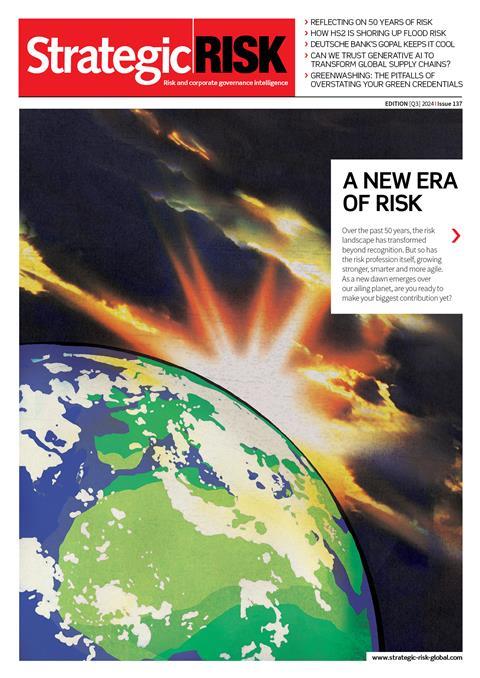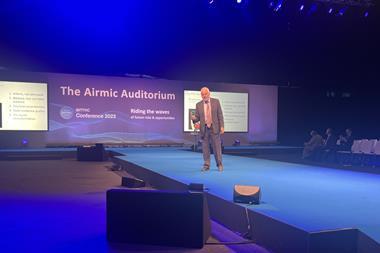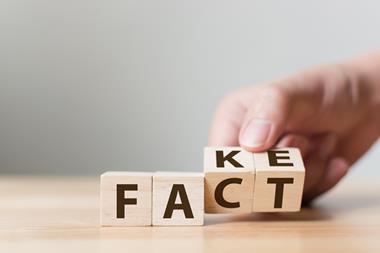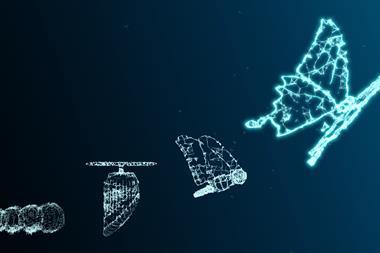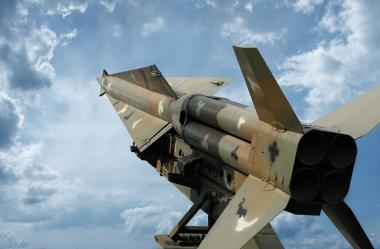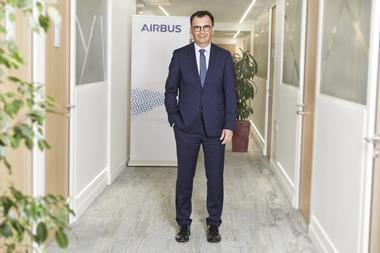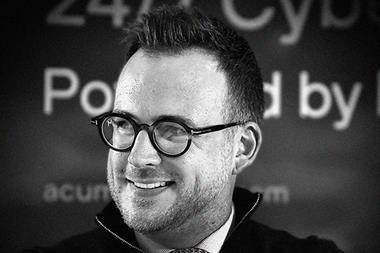LC: Tell me about your job, Colin.
CC: I am the group insurance and risk manager for Arcadia, which is the UK's largest clothing retailer. Our brands include Burton, Dorothy Perkins and Topshop. I do all the regular insurance across the whole group - property, employers' liability, public liability - fairly standard stuff.
A bigger issue concerns the supply chain, general logistics and systems.
What we do works because of systems, and the whole idea of just-in-time.
Making sure that we have everything where it needs to be at the right time is very interesting.
While I report to the group treasurer, I work closely with the operations side. I sit on our risk management committee, and look at all the risks of the business. This involves me in the corporate governance end of the organisation, the whole spectrum of brand risks, money and cash flow, so critical to a retail business, and reputation.
LC: What was your career path?
CC: I'm from Perth which was the headquarters of General Accident (GA), later incorporated into what is now Aviva. Boys from Perth went into the police, the fire brigade or General Accident. I joined from school on a recruitment drive. We were put onto a process training unit where we were taught how to do very simple tasks. I spent the next year to 18 months going to different GA locations around the UK. Finally, I ended up in the City office which was in Old Jewry, handling claims.
I qualified as an ACII, and then felt I needed to move on. I went to work for what was then the Argyll Group, the food manufacturing and supermarket group that eventually became Safeway.
LC: What experience stands out from your early days in risk management?
CC: I was at Argyll when it tried to take over United Distillers plc.
We had a big battle with Guinness, which won - the tactics it used are well documented in the history of corporate fraud. Although I wasn't directly involved in the takeover battle, I worked in the company secretary's department where it was all happening and I learned a huge amount. The due diligence was very interesting; I was exposed to the top people and the top lawyers.
It was a great learning time to be in the company, even if it was somewhat unsettling.
Argyll then bought the UK Safeway supermarkets from the US. I was there for three years, then I moved to the Burton Group, which consisted of Debenhams and other stores.
LC: What happened next?
CC: Debenhams was demerged from the group in 1998. I was involved in the demerger process, and it was very interesting and time consuming.
For instance, the group had a captive, one of the first established in Guernsey. It had substantial assets, but it also had a lot of liabilities.
We had to do something with it, and we eventually closed it down. It was a huge task.
Arcadia is the group of businesses that remained after Debenhams was demerged. At that stage, it was still a plc, but about 18 months ago, Philip Green, the owner of BHS, and principal shareholder, moved Arcadia back to being a private company.
LC: Now that Arcadia is a private company, how important is the issue of reputation?
CC: We are less focused on our reputation with investors, but it is still important to us. We pay great attention to garment sourcing, the whole manufacturing chain. In the fashion industry, customers may be less sensitive to this issue than in some others, but we have to be cool and on the edge.
I am involved in setting business standards so that we are consistent in the group.
LC: What other aspects of risk management have you been involved in?
CC: Having worked on insurance at Burton for about three years, I went into operational risks, which is about loss control. Initially, I was dealing with insurance risks, such as burglaries, fire, safety and so on, but it developed into more loss prevention, especially in terms of what the retail trade calls 'shrinkage'. Shrinkage can be a bigger percentage of a retailer's turnover than any other cause of loss, often for accounting reasons. We did a great deal of analysis to find out why losses happened and how we could reduce them. The concept we came up with as a result recovered a lot of money.
LC: From your experience, how do you see the role of the risk manager?
CC: The role of a risk manager will largely depend on the aptitude and skills of the individual and the expectations of the company he or she works for. There is certainly scope in most organisations for insurance and risk managers to branch out to areas well beyond traditional insurance.
Being flexible and up to date is key, together with the ability to draw on good external advice and act as a sounding board for those involved at the sharp end.
Risk managers are good at looking at things from a different angle, sometimes helping the business to find better, safer and often less expensive ways of doing things with risks understood and addressed. To be pragmatic and progressive and to have the ability to master multiple disciplines are important characteristics for the modern risk manager.




